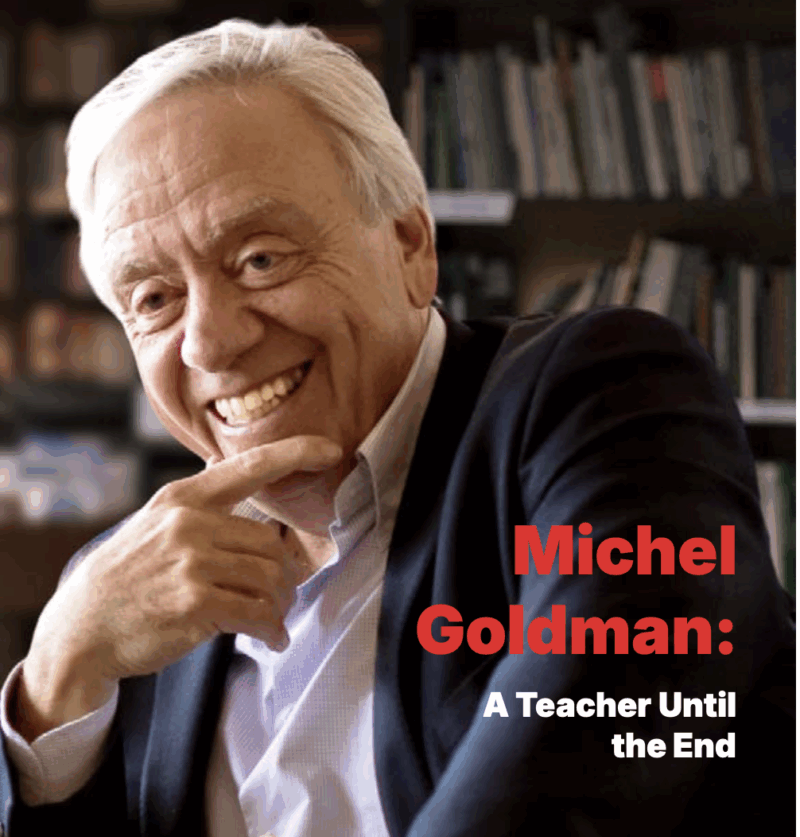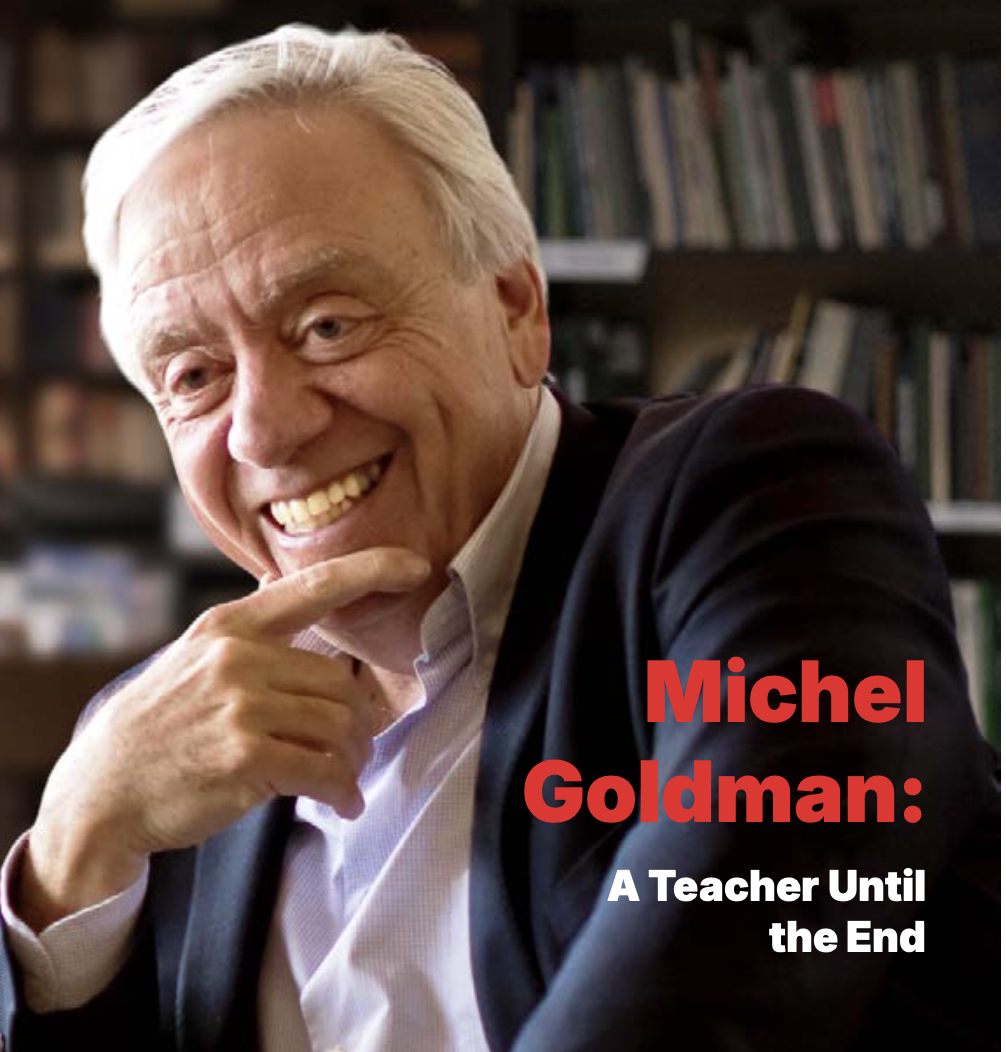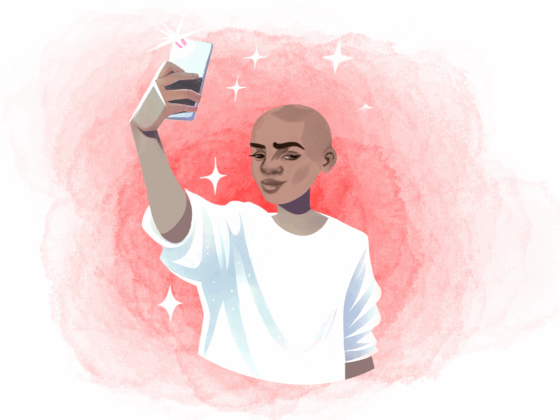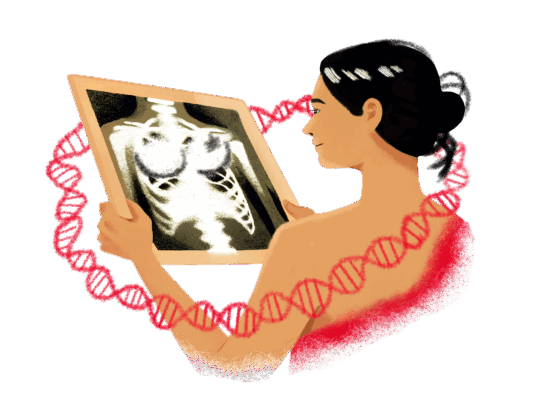In a quiet Brussels morning, we sat down with Dr. Michel Goldman, 70, a world-renowned immunologist, the founding president of the Institute for Interdisciplinary Innovation in Healthcare (I3h), and former executive director of the €2 billion Innovative Medicines Initiative. But his story is not just one of science and leadership; it is also personal. Goldman is a lymphoma patient. A scientist who spent decades studying lymphocytes, cells that one day had turned against him.
That irony doesn’t escape him. It has brought a rare perspective to his life and work, one that straddles both the microscope and the hospital bed.
A Childhood Steeped in Medicine
Dr. Goldman’s earliest memories are not of playgrounds or picture books, but of patients. “My father was a general practitioner. He saw patients at home. He was a key source of inspiration for me,” he recalls.
This deep immersion in the world of healing shaped not only Michel but his entire family. His brother pursued neurology before becoming a professor and chair of the Department of Nuclear Medicine at the Université libre de Bruxelles, while his sister became a clinical psychologist, dedicating her work to supporting autistic children at Columbia University Hospital in New York. Furthermore, his wife, who was an essential support throughout his career, was a renowned dentist.
Yet Goldman wasn’t all microscope and monographs. He was a junior national tennis player for Belgium. “I had a very happy childhood,” he says. “We traveled. We played sports. But still, medicine was everywhere.”
From Nephrology to Immunology
Originally trained in internal medicine and nephrology, Goldman didn’t fall into immunology by default. A chance meeting in Geneva with a fellow Belgian researcher turned into a lifelong mentorship. “The decisive person who convinced me to shift from nephrology to immunology was Paul-Henri Lambert, who was leading a research and training center of the WHO in Geneva that I joined in 1980,” Goldman recalls. “He was a wonderful mentor and remained my major source of inspiration throughout my career and even after. He gave me remarkable freedom to explore, yet offered invaluable guidance that helped shape my professional life. Looking back, he was a key person who brought me to immunology from nephrology.”
Initially, Goldman focused on immune mechanisms involved in autoimmunity and organ transplantation. This bridge between internal medicine and immunology laid the groundwork for much of his later translational work.
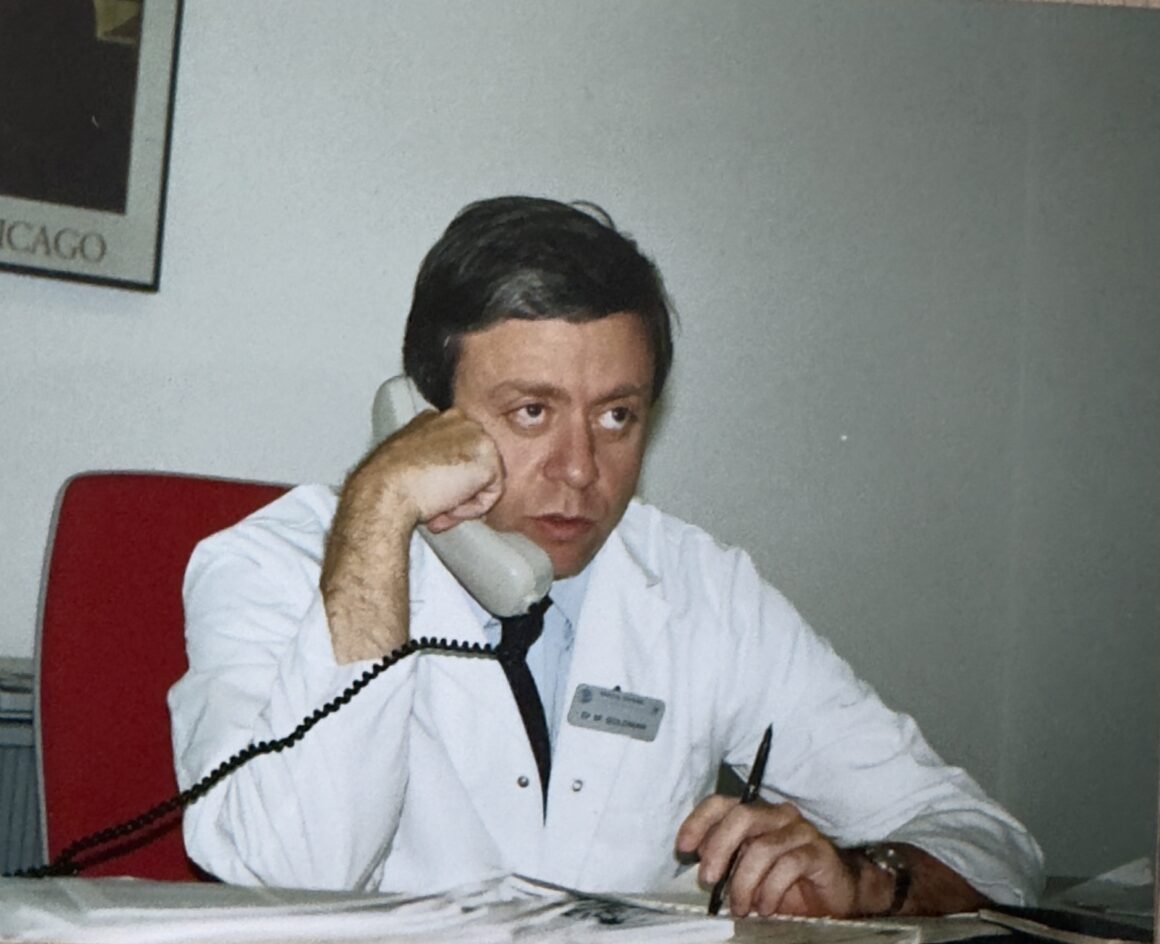
Combining the Structure of Industry with the Imagination of Academics
As head of the Innovative Medicines Initiative, Goldman faced the complex challenge of bringing pharmaceutical companies, academics, regulators and patients together to move health innovation forward, an idea that initially met with resistance.
At the time, the idea that patients should play an active role in drug development was far from universally accepted. “Now it’s widely understood, but back then, it wasn’t obvious to everyone,” Goldman explains. Goldman helped reshape how Europe approaches scientific collaboration. His proudest accomplishment? Founding the European Patients’ Academy on Therapeutic Innovation (EUPATI), an initiative that continues to thrive. “It was born from the conviction that patients must be closely involved in drug development, and that health literacy is essential to enable them to fulfill this role effectively.”He also launched several projects supported by major patient organisations, for example, in autism and diabetes. “The magic happens,” he says, “when you combine the structure and management skills of industry with the imagination and creativity of academics.”
Being on the Other Side of the Table
Then came the diagnosis: lymphoma. Suddenly, the man who had spent decades peering into the cellular mechanics of disease had to turn the lens on himself.
“It’s a strange feeling,” he reflects. “To understand exactly what’s happening inside your own body, and yet still be unsure about what comes next.”
Chemotherapy was brutal, but he was supported by world-class colleagues, many of whom were friends. “I was lucky,” he says. “I had access to brilliant people. I could ask detailed questions and get honest answers.”
And yet, for all his knowledge, he could not escape the emotional toll. “There are nights when you think about things that have nothing to do with science,” he says. “Your family. Your time. Your regrets.”
The Vaccine Controversy and Courage to Speak
In 2021, Goldman made headlines not for a scientific breakthrough, but for a personal essay written with his brother and other colleagues in which he explored the possibility that a COVID-19 mRNA booster may have accelerated the progression of his lymphoma.
“It was a hypothesis, not a conclusion,” he stresses. “The vaccines saved millions. But we need to keep studying their rare effects, especially if they’re used in oncology.”
He faced backlash, not from scientific peers, but from anti-vaccine groups who tried to co-opt his message and probably because he remained a strong advocate of vaccines. However, he insists:
“Oncologists should pay more attention to the lipid nanoparticles used in mRNA vaccine formulation to protect the nucleic acid from degradation, allowing its effective delivery in vivo. These lipid nanoparticles are responsible for the induction of a strong inflammatory response, which in very rare individuals might possibly lead to the expansion of pre-existing malignant or pre-malignant lymphocytes, leading to lymphoma flare. Some of these rare individuals might display underlying clonal hematopoiesis, which is also a major risk factor for cardiovascular events.”
I Want to Make Science Understandable to Everyone
Now mostly retired, Goldman continues to serve as editor-in-chief of Frontiers in Medicine and frequently speaks to public audiences. “I still write articles, give interviews, and speak at conferences, especially to lay audiences,” he says. “I enjoy explaining complex topics in an accessible way. It’s important to make science understandable to everyone.”
Goldman expresses concern about the rise of misinformation, the misuse of AI, and the growing erosion of public trust in science. At Frontiers, he works with a dedicated ethics and integrity team that screens submissions, ensuring originality and ethical conduct. “AI can help,” he says. “But integrity must come from people.”
Yet, he also sees a chance for renewal. “We need to teach young scientists not just how to publish, but why,” he emphasizes. “It’s a real challenge, but crucial. Researchers should be driven by the desire to share meaningful, innovative knowledge, not just to add another line to their CV.”
And he’s passionate about education. “If students leave my class understanding how science connects to people’s lives,” he says, “I’ve done my job.”
Legacy, Loss, and Looking Forward
When asked how he hopes to be remembered, Michel Goldman doesn’t hesitate.
“As someone who took a lot of attention to patients and helped them in various ways,” he says simply. Even after my lymphoma diagnosis, I continued to answer questions from others facing the same disease
He reflects on a life anchored by purpose: “I also hope to be remembered as an MD-PhD who was passionate about every aspect of medicine..”
As a professor and head of a laboratory, Goldman invested deeply in the training and mentoring of doctoral students. “I paid close attention to their development,” he says with pride. “Many of them have gone on to become internationally recognized leaders in their fields. That’s one of my proudest legacies.”
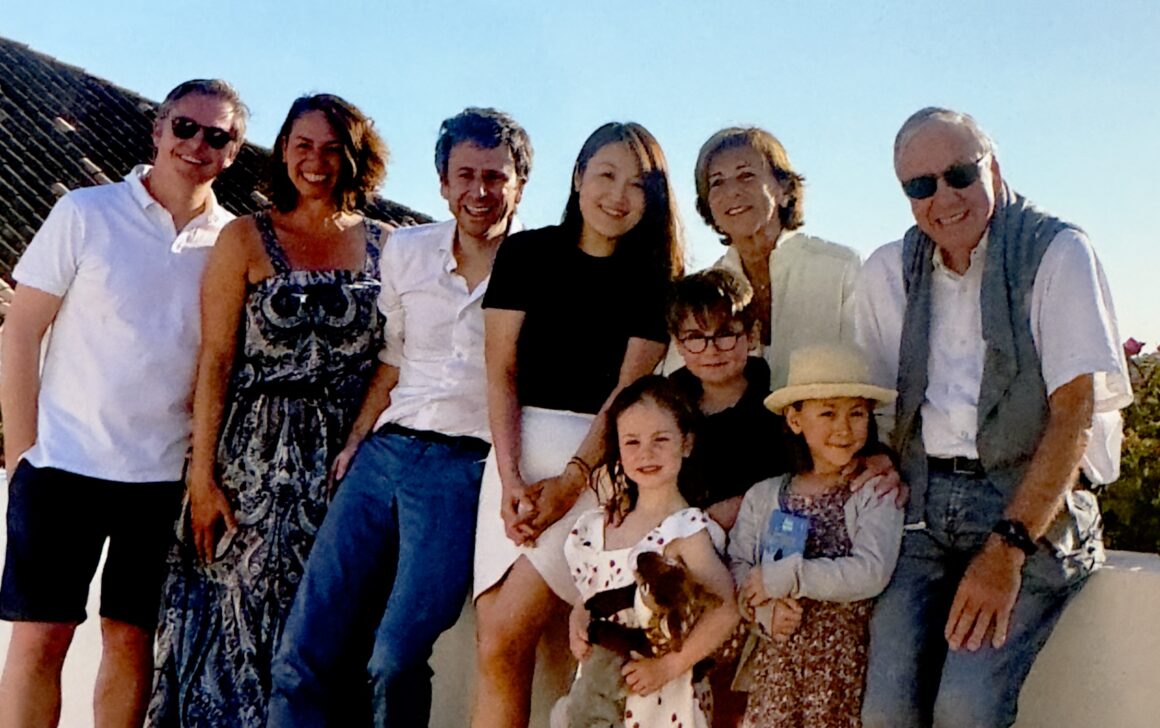
The Blitz Round: Who is Michel Goldman?
To close the conversation, we invited Michel Goldman to answer a series of rapid-fire questions, from favorite thinkers to personal doubts, here’s a glimpse into the mind and heart of Michel Goldman. Let’s discover who he is, together.
One scientific concept you think the public often misunderstands?
“The concept of benefit–risk balance. It’s assessed at the population level, but people understandably ask, ‘What does this mean for me, personally?’ That disconnect can lead to confusion, especially when someone suffers an adverse reaction and struggles to see how that fits into the broader decision-making process.”
One failure that taught you more than any success?
“Years ago, I pushed for a trial using the cytokine interleukin-10 to improve kidney graft outcomes. It was a failure. Not only did it not help, but it even stimulated antibodies that could harm the graft. Still, that’s science. We learn.”
A scientist (living or dead) you most admire?
“Ralph Steinman. He received the Nobel Prize just after he passed away, and the Nobel committee still awarded it. I had the privilege of knowing him a little. His discovery of dendritic cells, the triggers of immune responses, inspired my own work.”
Favorite book and movie?
“For books, I was deeply moved by one on the philosopher Spinoza, especially how it explored his relationship with the divine. As for films, I love the work of Pedro Almodóvar, especially those that explore human drama in medical settings.”
A question you still ask yourself often?
“Did my passion for science and medicine prevent me from fully enjoying other aspects of life? I ask that more frequently now, especially as I age. I just turned 70.”
And your answer?
“I was deeply invested in my work. But I had a great family, a wonderful wife and two nice children. We enjoyed traveling and playing sports together. Maybe I didn’t always realize how full my life really was.”
A quote you return to in times of uncertainty?
“Marie Curie said it best: ‘Nothing in life is to be feared. It is only to be understood. Now is the time to understand more, so that we may fear less.’”
Someone we should interview next, and why?
“Two names come to mind. Eric Vivier, in Marseille, who’s doing pioneering work at the intersection of academia and biotech. And Kris Thielemans in Belgium, who developed new applications for mRNA and also bridged academia with biotech. Both are scientists very much involved in oncology, with inspiring stories and impactful research.”
In one sentence, who is Michel Goldman?
(He smiles.) “That’s your job to decide. I’ll let you write the answer, and then I’ll tell you if I agree.”
For me, after more than an hour of conversation and reflection on his work, I’d say this: Michel Goldman is a passionate scientist, a lifelong teacher, and above all, someone who cares, deeply and consistently, for patients, students, colleagues, and family. But now, it’s your turn:
What would you say?

